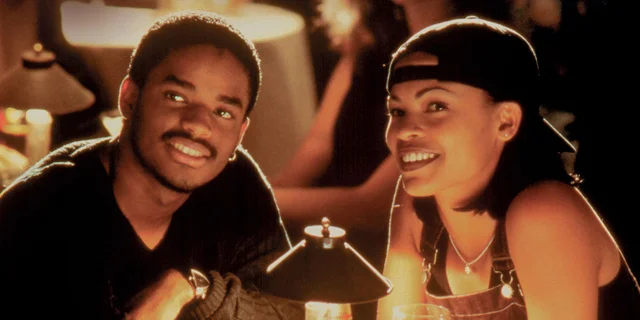Flawed 'Detroit' Still Feels Too Familiar
By Devvon Eubanks
Turbulent times are upon us. Today, we live in an age that continues to be built upon oppression, violence, and racism. While we are trying to unite, there are still ways in which we are divided. Furthermore, countless historical events have shown that while we have made progress, we still have quite a ways to go. One event that fanned the flames of turmoil was the 1967 Detroit Riots, an uprising of racial tensions that lasted five days and led to 43 deaths, 1,200 injuries, over 7,200 arrests, and more than 2,000 buildings destroyed. It was one of the most prominent responses to unfavorable social conditions in any city, and involved all of the Michigan State Police, and even the Michigan Army National Guard. Brutal, terrifying, and unconstrained, it was a time of absolute chaos and anarchy that tested even the most stalwart police officer and the most upstanding citizen. Now to commemorate the 50th anniversary of this event, director Katheryn Bigelow and screenwriter Mark Boal have come together to show a taste of this madness on the silver screen in “Detroit,” encompassing a story brimming with emotion, racial tension, and a singular event that would forever change the lives of many were were swept up in it.
At the outset, this film gives an amazing sense of atmosphere and tension. Bigelow and Boal do an amazing job of making scenes visceral and authentic by placing the viewer in the middle of the action with mobs of people under duress and fighting back against authority. With the citywide curfew already in place, the cracks were showing, and it only got worse as the days progressed. A brooding atmosphere and dynamic cinematography are coupled with acts of arson, looting, destruction, and constant anger by blacks and the police. The progression of scenes vividly shows the dynamic between diverse groups of people (white and black, the law and the oppressed, media outlets and the government) and gives several viewpoints as to what one might experience if they were actually in the middle of it all. There are also vintage media clips and news reels that are frequently placed in the film to give it a documentary feel. Overall, the film crew and the production teams did an outstanding job establishing a tense environment and keeping viewers on the edge of their seats.
The character development is also impressive. With a star-studded cast featuring names like John Boyega, Will Poulter, Algee Smith, Jacob Latimore, Jason Mitchell, and Anthony Mackie, "Detroit" is brimming with talent. Boyega, Poulter, and Smith get the most face time once the cast fully comes together, but thankfully no one is really left out. Every actor has a role to play, as well as varied reactions to the rioting and police presence. Boyega's security officer Dismukes, for example, is focused on keeping the peace between all parties and diffusing tense situations between his black brethren and the Michigan State Police and National Guard. On the other hand, Poulter as rookie police officer Krauss is against all blacks and believes that his job allows him to save these people from themselves. As such, he comes across as a racist and commits reprehensible acts (like shooting innocent looters) to establish control. By putting all of these personalities at the center of the riot's most infamous event at the Algiers Motel, Bigelow and Boal give the film greater depth and heightened pressure, where it is clear that the law goes too far to maintain order. And much of what happens at this motel and in the court case following replicates what is happening in our society today with police brutality, with white police officers being acquitted of major crimes against black citizens, and the extreme tension between police and minorities. In the end, “Detroit” simply shows that even with the passing of time, we are still living in shadows of the past, with fear and inequality still very much with us.
However, this is also related to the film's biggest flaw. While it is shows what various members of the police force have to do to establish order (though at times they can be reckless and illegitimate), nonetheless the outcome of the Algiers incident shows hatred not only against police, but also against whites in general. Algee Smith’s character Larry from the Motown soul group The Dramatics perfectly represents this. Once a character that just wanted to perform and sing for the masses and display his vocal skill, Larry eventually becomes someone who hates whites in general after the event at the Algiers. He changes his entire career because he doesn’t want to see them enjoying his music, despite courting a pair of white girls at the hotel before the police show up. This perspective comes across as a bit unrealistic and shows a kind of internal spite that could be perceived in the wrong way. But it also sparks a discussion on how events like these can sway minority perception of whites under times of duress. The buildup to the main content of the film takes a while and when it does come, the incident is circuitous in its execution, repeating a few steps over and over for emphasis and tension, appearing to pad runtime for the film.
Despite not being a flawless execution, “Detroit” breaks up the monotony of this year’s films. Hard-hitting, gut-wrenching, and unabashedly human, this film shows the heart of a society that yearns to be liberated and equal by any means necessary.
Grade: B




